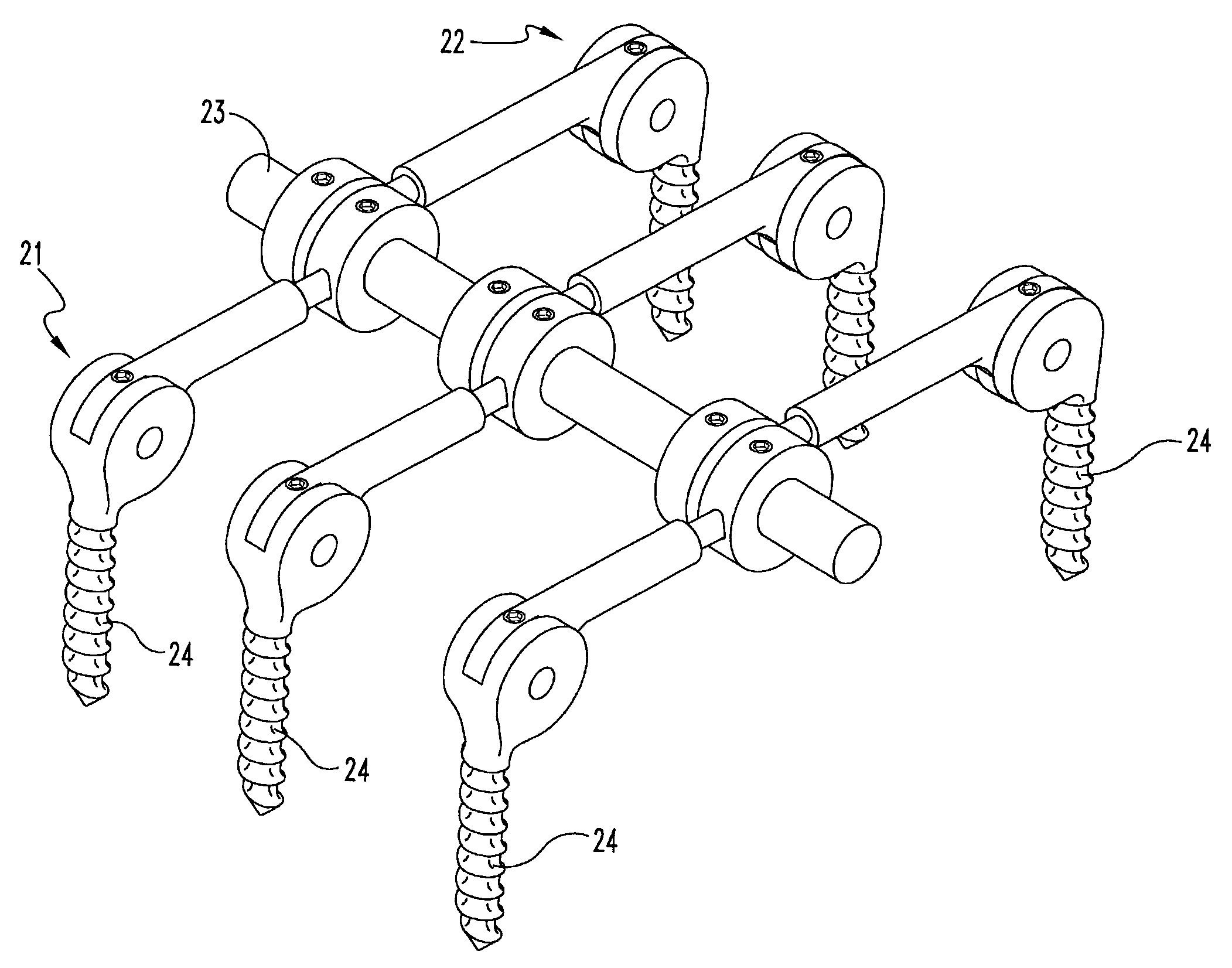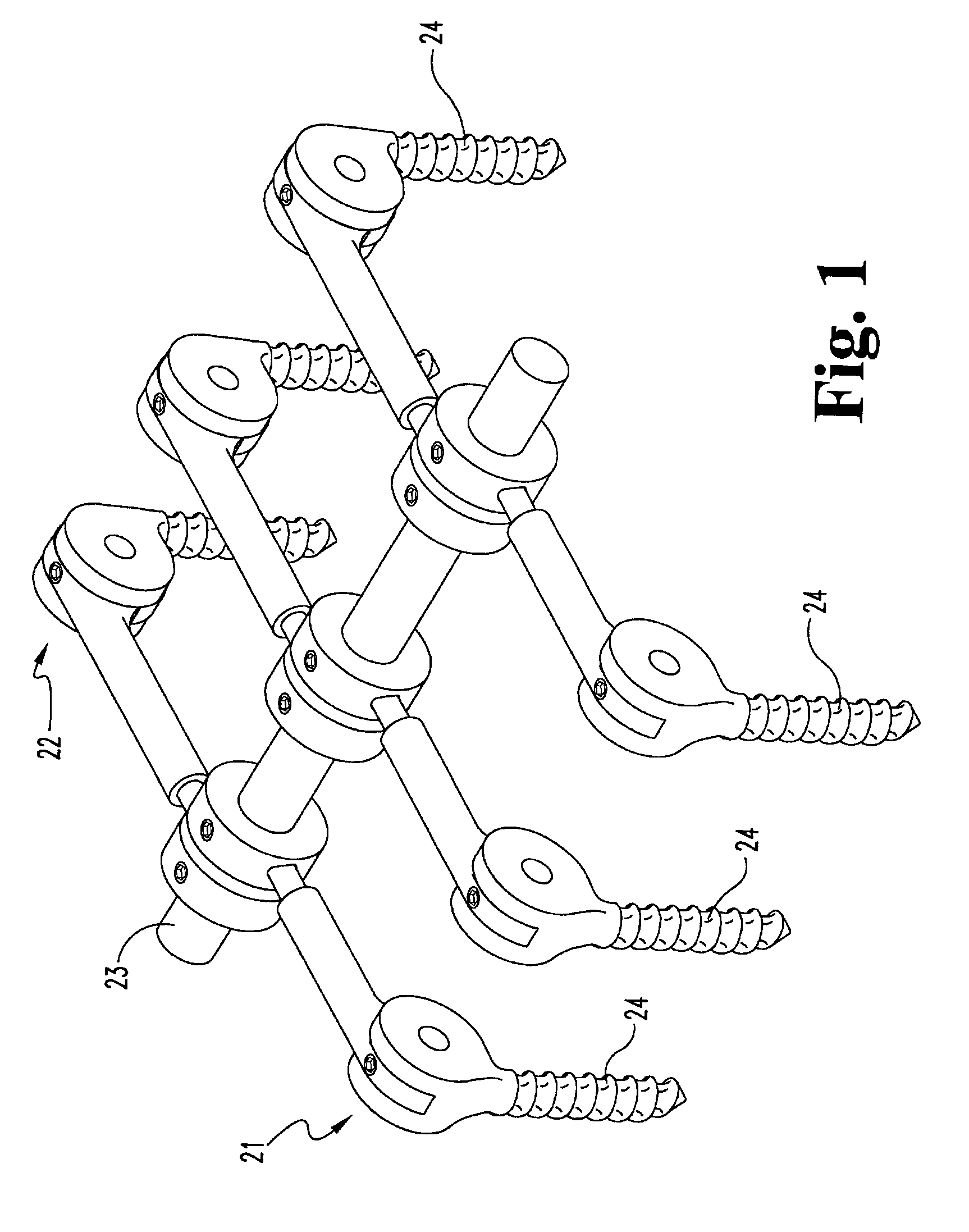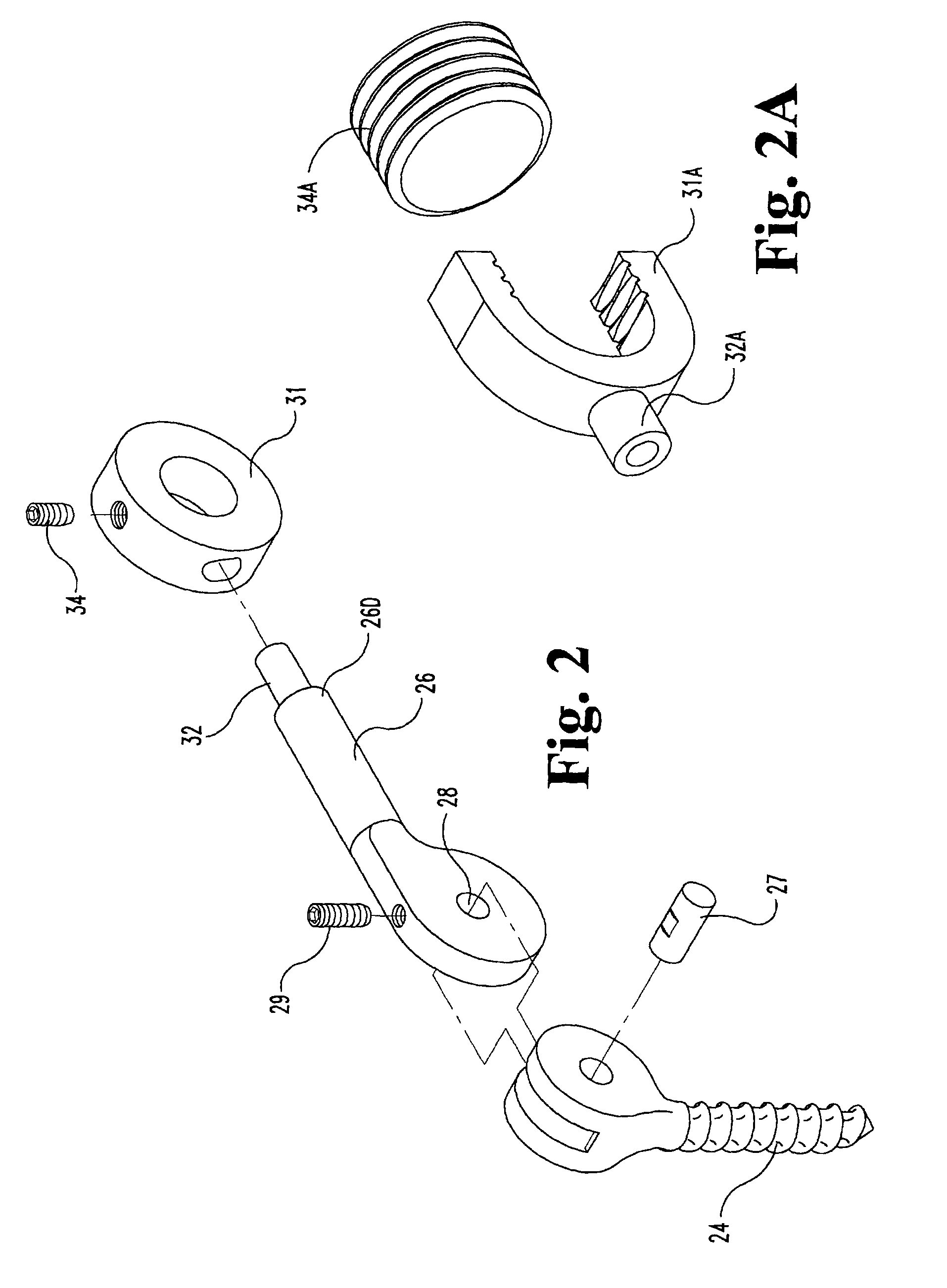Spinal fixation system and related methods
a technology of spinal fixation and spine, applied in the field of spinal fixation system, can solve the problems of long recovery time, significant amount of back muscle trauma, long recovery time, etc., and achieve the effect of minimizing the height of the profile of spinal implants, increasing or decreasing the spacing between cross supports
- Summary
- Abstract
- Description
- Claims
- Application Information
AI Technical Summary
Benefits of technology
Problems solved by technology
Method used
Image
Examples
Embodiment Construction
[0025]Turning now to FIGS. 1-2, one embodiment of a spinal fixation system according to the present invention includes two columns 21, 22 of pedicle screws along each side of a patient's spine and a single support rod 23 positioned between the two columns (i.e., substantially in the center of the spine) and connected to each of the pedicle screws. An example of the connection is shown in the exploded view of FIG. 2 where the pedicle screw 24 has a yoke at the top receiving a proximal end of connector arm 26 retained in the yoke by hinge pin 27, received through aperture 28 in the arm and fixed there by locking screw 29. At the distal end 26D of the arm 26, a ring 31 is connected by multi-axial hinge at 32 and through which the rod 23 is received as shown in FIG. 1 and secured in place by a locking screw 34. FIG. 2A is an example in which a multi-axial screw head 31A on stem 32A with locking screw 34A is substituted for ring 31 of FIGS. 1 and 2. Screw head and stem are of the Medtron...
PUM
 Login to View More
Login to View More Abstract
Description
Claims
Application Information
 Login to View More
Login to View More - R&D
- Intellectual Property
- Life Sciences
- Materials
- Tech Scout
- Unparalleled Data Quality
- Higher Quality Content
- 60% Fewer Hallucinations
Browse by: Latest US Patents, China's latest patents, Technical Efficacy Thesaurus, Application Domain, Technology Topic, Popular Technical Reports.
© 2025 PatSnap. All rights reserved.Legal|Privacy policy|Modern Slavery Act Transparency Statement|Sitemap|About US| Contact US: help@patsnap.com



